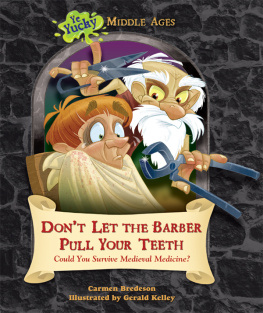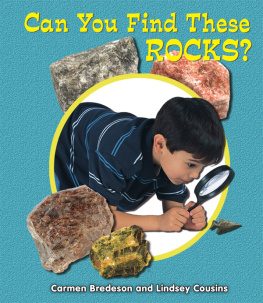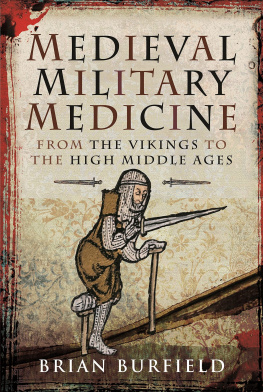Doctors Orders!
If you needed surgery, would you go to the barber shop? If you lived during the Middle Ages you would! Find out all about yucky medieval diseases and their treatments in this fascinating book.
A fun and engaging romp through aspects of public health in the medieval world.
John D. Hosler, PhD, Series Consultant Assistant Professor of History Morgan State University Baltimore, MD
About the Author
Author Carmen Bredeson, a former high school English teacher, has a masters degree in instructional technology. She has written more than seventy books for young people.

A dozen children ran down the street, laughing and playing. They dodged pigs and jumped over chickens. As they went around a corner, one boy slipped. He fell face-first into the gutter at the side of the street. He came up sputtering and wiped the brown slime from his face. On he ran, after his friends.
Gutters ran along the sides of many medieval streets. They were a dumping ground for pee, poop, and animal waste. The gutter water was full of germs that cause diseases. During the Middle Ages, people did not know about germs. They did not know how diseases spread or what caused them. Filthy water did not seem dangerous to them. Dirty streets were not thought to be a threat. They were a normal part of medieval life.
The Middle Ages were the years between 500 and 1500. This time is also called the medieval period.
When it rained, dirty water flowed down the streets. It ended up in the river. Where did many medieval people get water for cooking and washing? Out of the polluted river! It is a good thing that medieval people did not drink much water. It was too dirty and full of disease-causing germs. Instead they drank wine or weak beer all day longeven the children! Most towns had wells, but the water in them was dirty too. The cleanest water around was rainwater. However, it was only as clean as the jar it was collected in.
Dirty water is a good place to catch typhoid. This disease causes high fevers, diarrhea, and headaches. When a person with typhoid goes to the bathroom, germs come out in their poop. If that poop gets into the water supply, the germs can spread. Drinking the water or washing food with it can spread typhoid. Typhoid spread easily during the Middle Ages and caused many deaths.

Medieval people went to the bathroom where they could. Sometimes it was behind a tree or a building. Most homes had small pots that people used to go to the bathroom. Each house had a cesspit outside. The cesspit was a hole in the ground that was lined with wood or stones. People dumped their waste pots into it. As the pit filled up, the smell got worse and worse. Flies feasted on the piles of poop. Then they flew into the house and landed on the food. This could pass typhoid and dysentery to the family.
All of the cesspits had to be cleaned out when they got full. Men were hired to do this dirty work. The men were so smelly that they had to live together in a certain area of town. Nobody else wanted to live around them. As they worked, they got covered in filthy muck.

Some houses had a garderobe or privy. This little room had a raised bench with a hole cut in the middle. Waste fell directly into a pit underneath. A few clever people built their garderobes over streams. Then the waste fell into the water and was carried away from their houses. Where did the waste end up? In the river, of course. It flowed along with the toilet paper of the daymoss, straw, or leaves.

Medieval streets were full of animal manure. Horses, cows, sheep, pigs, goats, and chickens roamed around the streets. They left behind smelly piles of manure. Rats and mice scurried around the piles, looking for a snack.
All of this filth seems disgusting to us today. Why did the Middle Ages have to be so dirty? The lack of clean water was one reason. Washing in dirty water doesnt do much good, so why bother? If your neighbors threw their garbage in the street, you probably would too. Medieval people did not know that diseases could be spread in water and sewage.
Not all diseases of the Middle Ages were spread by dirty water. Scurvy was a common illness during the time. We now know that it is caused by a lack of vitamin C. Most people get their vitamin C from eating fresh fruits and vegetables. But during the long medieval winters, people did not have fresh fruits and vegetables to eat. The lack of vitamin C caused bleeding gums and loose teeth. When summer came around, there were fruits and vegetables again. Some people got enough vitamin C to make their symptoms go awayuntil the next winter.
Smoky air caused many lung problems for medieval people. Every house had a fire pit, with a fire burning much of the time. It was used for cooking food and heating the house. The fire made a lot of smoke. The smoke filled the air and escaped out a hole in the roof. When there was wind, the smoke blew back inside. People used candles and lanterns for light. These added to the smoky haze in the room. All of the smoke caused coughing, wheezing, and burning eyes.

Smallpox was another very serious disease. It caused a high fever, chills, and vomiting. The patient usually had a rash that turned into sores. The sores were often very large. They left deep scars on the skin, especially on the face. Smallpox could also cause blindness. The disease was easily passed from person to person. Many, many people died from smallpox.
In the Middle Ages, many people had skin rashes and sores. They didnt bathe much, so their skin got irritated. Some people bathed in rivers and streams, but it was too cold to do this during the winter.

Wealthy people may have taken a few baths a year. They had servants to heat water and carry the heavy buckets to a tub. That is not true in all cases, though. Most people washed their hands and faces in the morning. They also washed their hands before eating. Clothing was often made of scratchy wool. Cloth was expensive, so most people had only one set of clothes. It wasnt washed very often, if ever. Fleas and lice lived in the clothes and feasted on the bare skin.
Leprosy has long been one of the most feared skin diseases. The victims skin and nerves are infected by germs. First the fingers and toes get numb. Then the fingers and toes might become paralyzedor even fall off. Leprosy sometimes causes the bridge of the nose to collapse. The disease can also cause blindness. Lepers have been shunned because their disease does such horrible damage to the body.





















